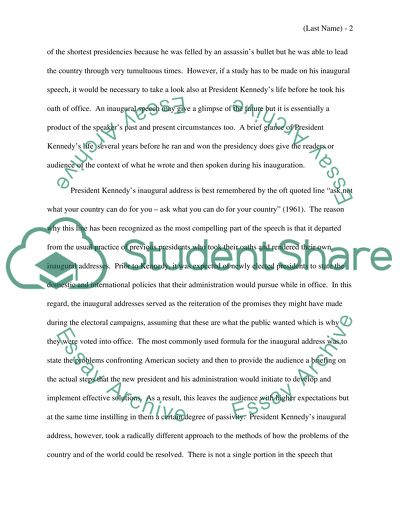Cite this document
(“JFK Inaugural Speech Research Paper Example | Topics and Well Written Essays - 2000 words”, n.d.)
Retrieved from https://studentshare.org/english/1433139-jfk-inaugural-speech
Retrieved from https://studentshare.org/english/1433139-jfk-inaugural-speech
(JFK Inaugural Speech Research Paper Example | Topics and Well Written Essays - 2000 Words)
https://studentshare.org/english/1433139-jfk-inaugural-speech.
https://studentshare.org/english/1433139-jfk-inaugural-speech.
“JFK Inaugural Speech Research Paper Example | Topics and Well Written Essays - 2000 Words”, n.d. https://studentshare.org/english/1433139-jfk-inaugural-speech.


